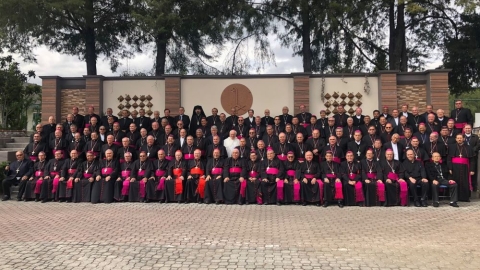The “Guardians of Tradition” and the “Joy of Love”

In 2016, Pope Francis published the Post-Synodal Exhortation Amoris Lætitia in which he granted - on a case-by-case basis - access to Eucharistic communion to “remarried” divorcees who are not entitled to it, according to the constant moral teaching of Catholic Church.
This is a reflection by Fr. Alain Lorans.
In 2021, he published the Motu proprio Traditionis custodes, whose draconian conditions aim to restrict as much as possible the right of the faithful to the Mass of all time, with the hope that one day this right will be extinguished altogether.
On the one hand, there is a pseudo-right to communion granted by “pastoral mercy”; on the other hand, a true right to the Mass of all time, trimmed and almost denied in the name of “the unity of the Church,” compromised by a lack of submission to the conciliar magisterium from which the New Mass is claimed.
On the one hand, an extreme concern for the “peripheries of the Church”; on the other, absolute severity with regard to those who are attached to the Holy Sacrifice of the Mass, and who, following cardinals Ottaviani and Bacci - in their Brief Critical Examination of the Novus Ordo Missæ [aka: the Ottaviani Intervention] (1969) - affirm that the Mass of Paul VI “represents a striking departure from the Catholic theology of the Holy Mass as it was formulated in Session XXII of the Council of Trent. The ‘canons’ of the rite definitively fixed at that time provided an insurmountable barrier to any heresy directed against the integrity of the Mystery.”
These two opposing attitudes manifest a paternal sentiment that is inversely proportional: generous for the peripheries, rigorous for the Catholics. The former are invited to share the “joy of love” (Amoris Lætitia), even outside of Christian marriage; the latter are requested to obey the “guardians of tradition” (Traditionis Custodes) who are the bishops.
Will we one day see the priests and the faithful attached to tradition benefit from the care reserved for the peripheries, and will the latter know the rigor of the calls to order which the guardians of the conciliar tradition bestow on the former?
Related links
(Sources : Dici n° 412 - FSSPX.Actualités)
Illustration : Photo 17960563 © Vladimir Sazonov | Dreamstime.com





